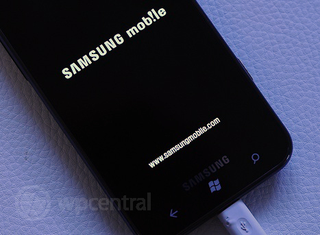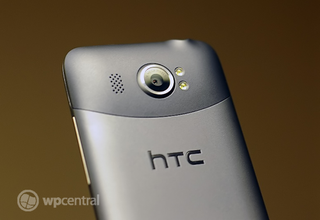Samsung and HTC changing strategies for Windows Phone. We look at who wins and who loses.

Although Windows Phone 8 is not quite yet here, the ever-dynamic smartphone industry is once again churning and there are some big changes coming.
Today we’ve seen two stories that will both have an impact on Windows Phone--one about Samsung, the other about HTC--and we’ll see what that will mean for consumers this fall.
Samsung says ba-bye to Bada
First up is Samsung. As some of you may know, they have their own homegrown OS called Bada that actually has similar marketshare number as Windows Phone. Trouble is, that OS is old and Samsung wants to phase it out ASAP. Its replacement, Tizen, is an Intel-MeeGo successor based on Linux. Like all mobile Linux OS’s, Tizen is suppose to be the next-big thing but alas, it’s being delayed with no first devices expected until 2013.
That puts Samsung in a pickle because although they would like to be independent with their own, unique OS they have to rely on Android and Windows Phone to pay the bills. Now with Tizen being kicked down the road it means they can either make more Android phones or focus more on Windows Phone 8.
Tizen is evidently complete but the ecosystem is crud, according to developers. So in the meantime, Samsung may have to give us some solid Windows Phone devices. Does that mean we can see some more high-end and actually unique devices from Sammy? We’re not betting on it but we’ve liked the Focus S and Focus 2 quite a bit for Windows Phone and hope they will put their best foot forward this fall—as they have more to win (and more to lose) than ever before.
Will Odyessey and Marco give us what we want or will Nokia crush 'em?
HTC and the decline
We spoke about HTC quite a bit today on the podcast. The company has been in free-fall for the last 18 months, which is quite surprising. Having teamed up Dr. Dre and Beats Audio, using those Super LCD screens (instead of the pentile AMOLEDs from Samsung) and kicking some derriere with their cameras recently, HTC appeared to be on the right track.
Get the Windows Central Newsletter
All the latest news, reviews, and guides for Windows and Xbox diehards.
The One X brand was positioned during the iPhone 4S lull and pre-Galaxy S3 launch, giving the company a nice 2 months of unfettered market comeback. Despite a lofty advertising campaign, the One Series has evidently failed to impress, resulting in a steady decline. Now with the iPhone 5 and Galaxy S3, they are basically finished for the year. The OnLive thing didn't help either.
So what will HTC do? Unfortunately their attempt to make high-end premium handsets, akin to what Apple and Nokia are known for has not panned out. That means lower-cost handsets are the future, much like what Nokia is attempting with devices like the Lumia 610.

HTC can make nice things
What does that mean for Windows Phone? Hard to say at this point as besides the fantastic 16MP camera found in the Titan II, HTC has not really pushed the envelope in design or technology. Beats Audio is being kicked to the curb—no headphones and no “Beats audio technology” anymore—to reduce costs. We’re not convinced that cheaper HTC phones are what consumers are necessarily looking for, nor are cheap, uninspired designs.
No, what HTC needs is a combo of fresh ideas and some new technology. But that’s easier said than done (it’s not as if they didn’t try with the One series, which focused on music and the camera). Does Windows Phone 8 offer any way for them to really differentiate themselves from the rest? Probably not in the way that Android and Sense did for them in the past.
Look, HTC may be a tad boring these days but we don’t want to see them go under either. The company is in trouble though and we’re not sure if they’re going to regain any lost momentum via Windows Phone 8—the incentive just isn’t there at this point. And although we’d love to see some killer designs from them, sometimes you can’t teach a dog new tricks.
But we’d like to see HTC try, that’s for sure. Devices like the Mozart, Titan (I, II) and Radar show they still can make solid phones. Will 'Rio', 'Zenith' and 'Accord' with Windows Phone 8 change things for the better? We'll see.
Source: Unwired View 1, 2

Daniel Rubino is the Editor-in-chief of Windows Central. He is also the head reviewer, podcast co-host, and analyst. He has been covering Microsoft since 2007, when this site was called WMExperts (and later Windows Phone Central). His interests include Windows, laptops, next-gen computing, and watches. He has been reviewing laptops since 2015 and is particularly fond of 2-in-1 convertibles, ARM processors, new form factors, and thin-and-light PCs. Before all this tech stuff, he worked on a Ph.D. in linguistics, watched people sleep (for medical purposes!), and ran the projectors at movie theaters because it was fun.
